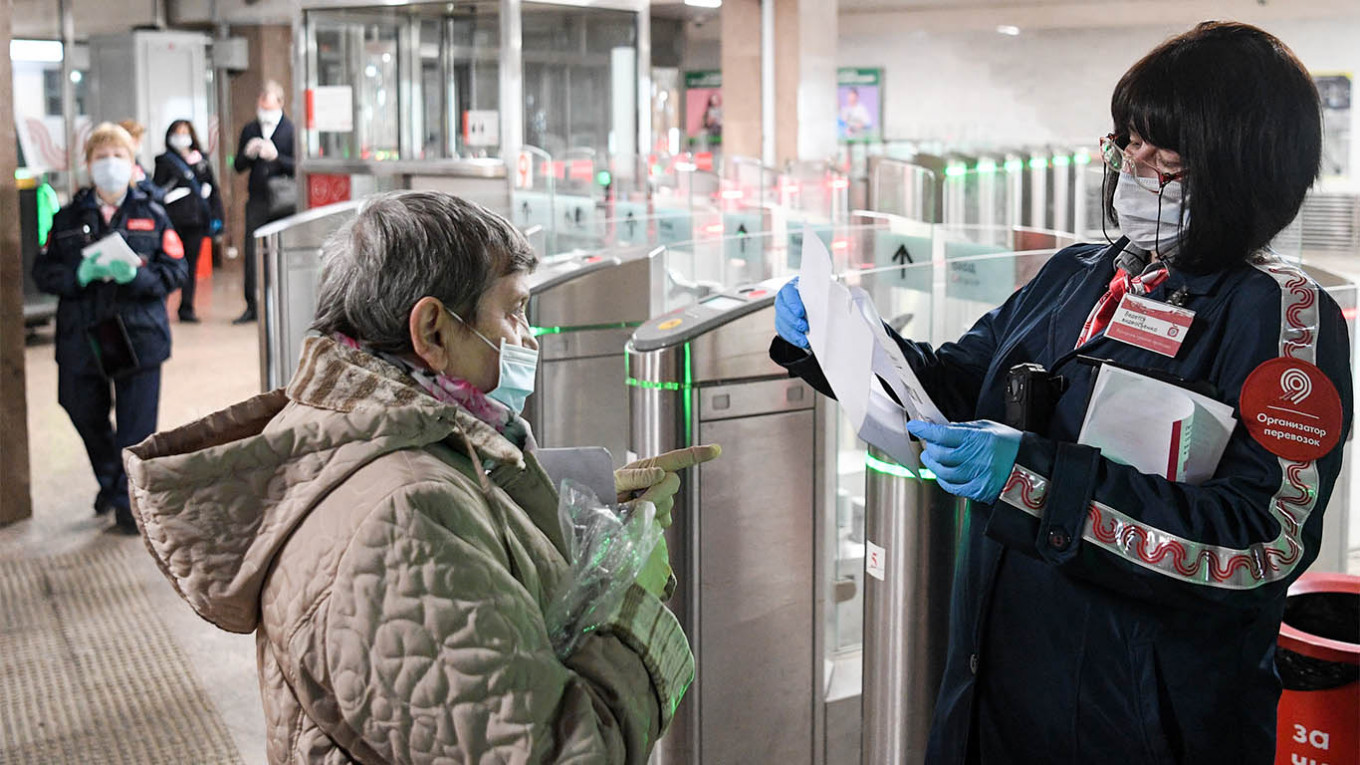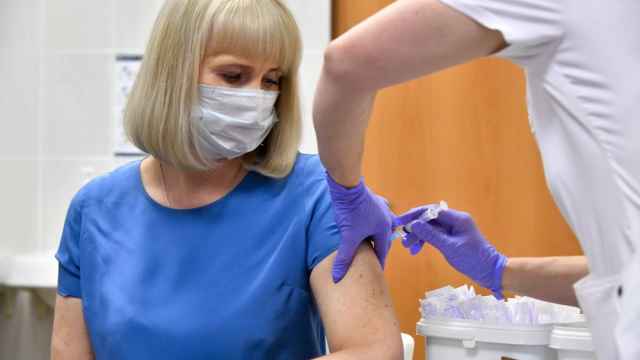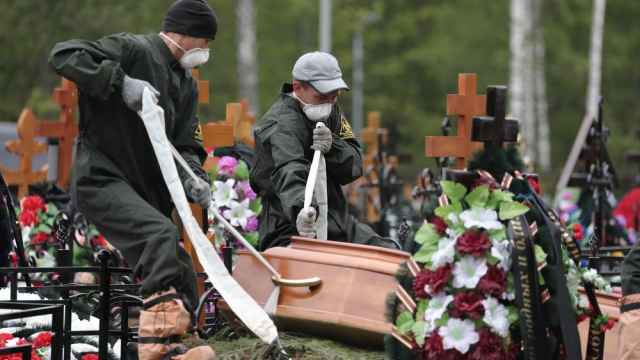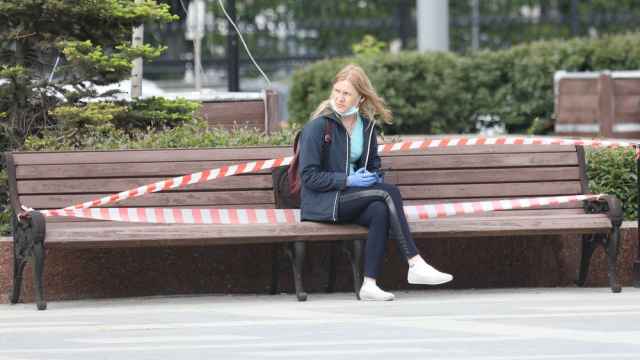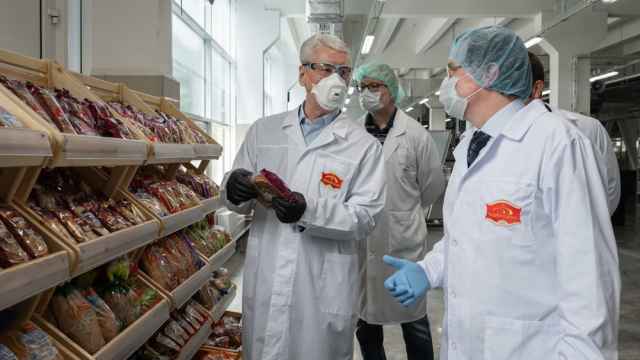On an electric trolleybus ride into central Moscow, all the passengers and the driver are wearing masks and gloves under new rules as the city begins a gradual return to work.
"It's positive, because it's a necessary measure," says 25-year-old Tatiana Khan, who wears a surgical mask and a T-shirt bearing a "love" motif.
The Russian capital with 12 million residents is still under lockdown but half a million employed in construction and industry sectors were allowed to work from Tuesday for the first time since late March.
To avoid an escalation in the number of infections, the city authorities have made it mandatory to wear gloves and a mask on public transport, on pain of a fine of 5,000 rubles ($68).
Khan is a key worker employed by the municipal housing authorities and has been disinfecting the hallways of apartment blocks to prevent the spread of the virus.
"If everyone had worn masks from the start, observed the precautions, I think we wouldn't have had such a spread of the epidemic," she says as the half-empty bus drives around the city center.
High death toll
Russia on Tuesday became the second worst-affected country in the world, after the United States, with more than 242,000 confirmed cases of Covid-19 as of Wednesday.
The capital has borne the brunt of the pandemic with more than 121,000 cases and also accounts for more than half of the national death toll of 2,212.
Most people living in Moscow are still supposed to stay at home under a lockdown lasting until May 31.
Streets are still largely deserted, even during the morning rush hour.
In the Moscow metro, famed for its elaborate stations, inspectors stop a few passengers at the ticket gates and order them to buy gloves from vending machines or at the ticket window.
Escalators and platforms at Savyolovskaya station, a transport hub for commuters, are far less crowded than usual, but the stream of passengers is steady.
Most wear medical masks or reusable cloth ones, along with disposable latex gloves or rubber washing-up gloves.
'Return to normality'
"This move is an important step towards a return to normality," says Vladislav Sultanov, a city transport official at the station.
"Today we are warning passengers who don't have protective gear, but from tomorrow they will risk a fine."
One passenger Natalia Goronok is traveling to her job at a bank, which is classed as essential work.
The 48-year-old wears a black cloth mask with an elegant grey scarf and jacket.
"It's protection, I hope it will work," she says.
"I've basically been going to work throughout the quarantine period and fingers crossed, everything's fine."
In her view, the time has come to lift lockdown measures that have ravaged the economy.
"It is scary that the cases are going up, but people do need to live," she says.
President Vladimir Putin stressed the need to restart the economy on Monday as he announced the end of six non-working weeks across the country.
In Moscow, Mayor Sergei Sobyanin ruled that only construction and industry could reopen, and social distancing measures had to be observed.
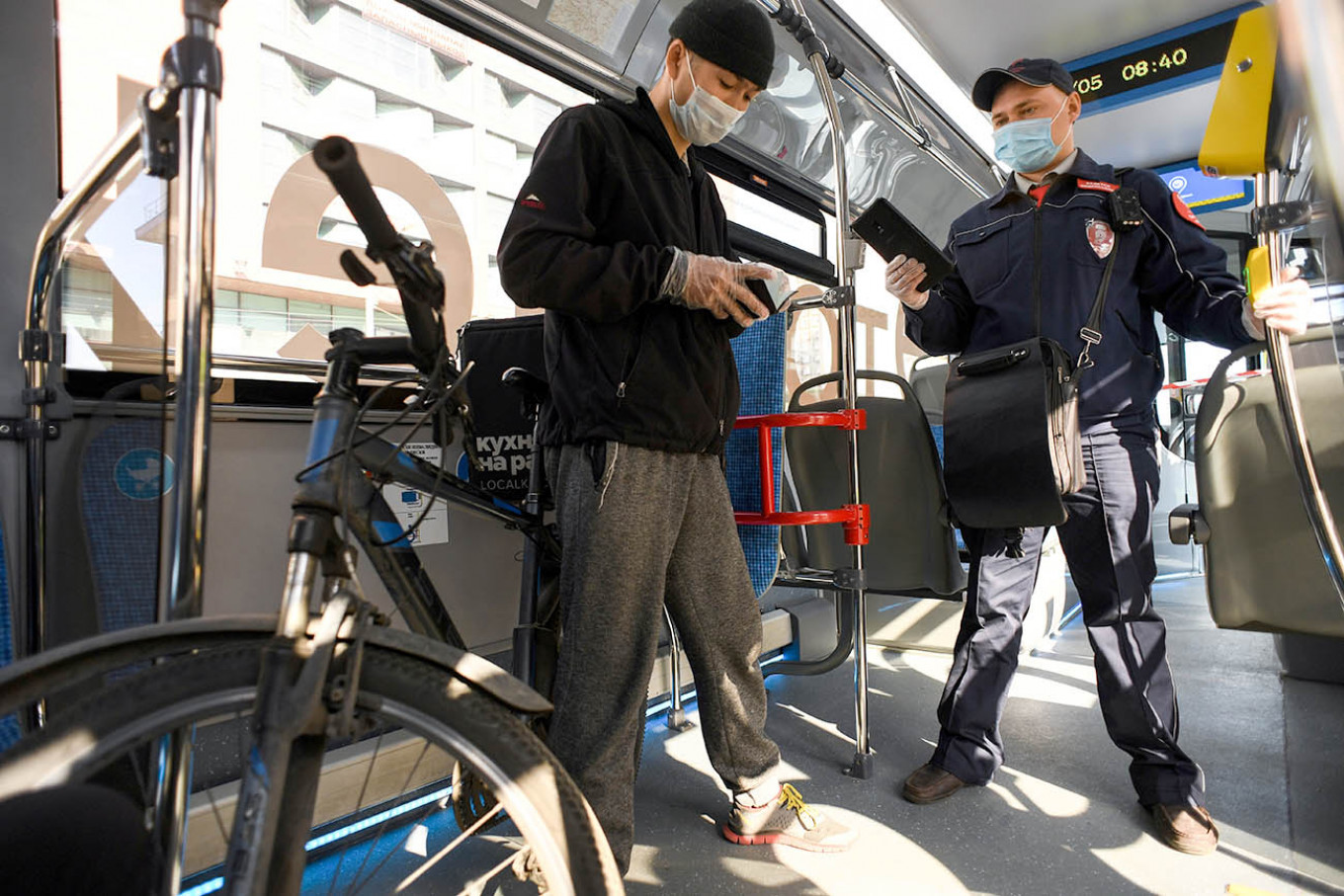
One project back underway is the demolition of a massive former Soviet cinema in the city center, earmarked for a luxury housing complex incorporating leisure facilities.
After a break of a month-and-a-half, excavators are busily sifting through rubble in clouds of dust.
Struggling to survive
"Today it's starting again, but some construction sites remain closed," said one worker, Alexei, who declined to give his surname.
He added that he had been "lucky" and had worked over the lockdown period in breach of the rules.
But many other Moscow residents are unable to work and are struggling to survive.
Artur Magomedov, 34, was taking the bus to the headquarters of the traffic police to apply for a job as a driver after six weeks of unemployment.
He said his family has been keeping their heads above water with help from his parents and his wife's small wages from a job at a supermarket.
"Health is the most important thing, I understand that, but I can't wait for all this excitement about the virus to end," he says.
A Message from The Moscow Times:
Dear readers,
We are facing unprecedented challenges. Russia's Prosecutor General's Office has designated The Moscow Times as an "undesirable" organization, criminalizing our work and putting our staff at risk of prosecution. This follows our earlier unjust labeling as a "foreign agent."
These actions are direct attempts to silence independent journalism in Russia. The authorities claim our work "discredits the decisions of the Russian leadership." We see things differently: we strive to provide accurate, unbiased reporting on Russia.
We, the journalists of The Moscow Times, refuse to be silenced. But to continue our work, we need your help.
Your support, no matter how small, makes a world of difference. If you can, please support us monthly starting from just $2. It's quick to set up, and every contribution makes a significant impact.
By supporting The Moscow Times, you're defending open, independent journalism in the face of repression. Thank you for standing with us.
Remind me later.


